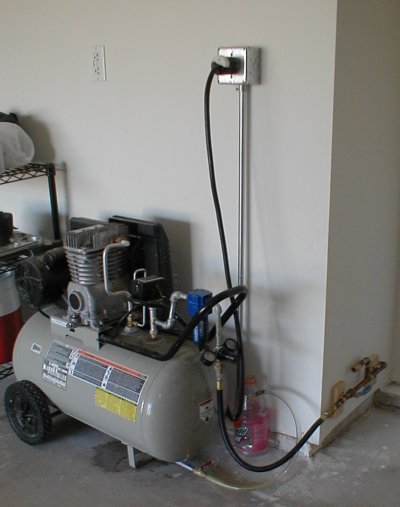Well after reading the post the other day about a blown compressor, I made it a number one priority to run to HD and pick up a 1/4" street ell, 1/4" x 4" brass pipe and a 1/4" ball valve. This afternoon when I got home from work I installed it. It was about 15 minutes worth or time and OH WHAT A DIFFERENCE!
Now draining the tank is just a quick turn of the valve for about 10 seconds or so. This is a MUST do for all compressors.
I'll post a pic as soon as I can.
Mike




 Reply With Quote
Reply With Quote



 I open my drain every night and drain water ultil it stops then close it. I don't thinkit is nessary to drain all the air. Then next time it is easyer to fill it. Mike
I open my drain every night and drain water ultil it stops then close it. I don't thinkit is nessary to drain all the air. Then next time it is easyer to fill it. Mike


 Even draining your tank on a regular basis is not necessarily a guarantee that your tank will maintain its structural integrity. Corrosion will attack a "corrosion point" in the tank and the water vapor left, even after a "drain", will not curtail that attack. A "salt water" environment can quickly accelerate this problem.
Even draining your tank on a regular basis is not necessarily a guarantee that your tank will maintain its structural integrity. Corrosion will attack a "corrosion point" in the tank and the water vapor left, even after a "drain", will not curtail that attack. A "salt water" environment can quickly accelerate this problem. 








